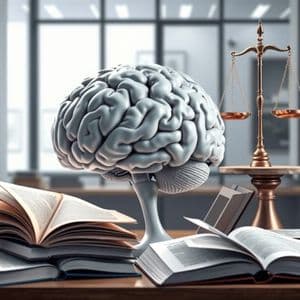BitcoinWorld Anthropic’s Breakthrough: Settles AI Copyright Lawsuit, Paving Way for Generative AI The world of artificial intelligence, particularly generative AI , is constantly evolving, bringing with it both incredible innovation and complex legal challenges. A recent development has sent ripples through the tech and literary communities: Anthropic, a leading AI company, has settled its high-profile Anthropic lawsuit with a group of authors over the use of their books for training its large language 0 pivotal moment could redefine the boundaries of intellectual property in the age of advanced 1 the Anthropic Lawsuit: A Deep Dive into AI Copyright The case, known as Bartz v.
Anthropic, centered on a fundamental question: when does the use of copyrighted material to train artificial intelligence models constitute infringement, and when does it fall under the umbrella of fair use? Authors, both fiction and non-fiction, alleged that Anthropic utilized their published works without permission to develop and refine its powerful large language models (LLMs). This ignited a critical debate about the value of human creativity in an era where machines learn from vast digital 2 many creators, the unauthorized use of their work for AI training data represents a direct threat to their livelihoods and the integrity of their intellectual 3 argue that if AI models can ingest and learn from their entire body of work without compensation or credit, the economic incentive for creating original content diminishes 4 AI copyright challenge is not unique to Anthropic; it’s a systemic issue facing the entire generative AI 5 Nuances of Fair Use and AI Training Data In a significant twist, a lower court ruling in the Anthropic lawsuit had previously granted Anthropic a partial 6 court ruled that the company’s use of books for training its AI models generally qualified as fair 7 decision was based on the principle that training an AI model, which then generates new content, is a transformative use of the original material.
It’s not about copying the book directly, but about extracting patterns and knowledge to create something new. However, this partial victory came with a critical 8 the *use* itself might be fair, the *source* of some of the training material was 9 of the books used by Anthropic were reportedly pirated, meaning they were obtained 10 aspect exposed Anthropic to significant financial penalties, despite the fair use finding for the transformative nature of AI 11 highlights a crucial distinction in intellectual property law: even if the ultimate application is deemed fair, the methods of acquiring the source material must also be lawful. Anthropic, at the time, viewed the fair use ruling as a triumph for the burgeoning generative AI 12 the company stated to NPR, “We believe it’s clear that we acquired books for one purpose only — building large language models — and the court clearly held that use was fair.” This perspective underscores the industry’s push for broad interpretations of fair use to facilitate rapid AI 13 Does This Settlement Mean for Generative AI Development?
The recent settlement, announced during the appeal process with the Ninth Circuit Court of Appeals, brings the Anthropic lawsuit to a close without public disclosure of its 14 confidentiality leaves many questions unanswered but provides immediate relief from ongoing litigation for both 15 the generative AI industry, the lack of public details means there isn’t a definitive legal precedent set by the settlement itself, unlike a court ruling. Nonetheless, the fact of the settlement sends a strong 16 suggests that even with a partial fair use victory, the legal and financial risks associated with using potentially unauthorized AI training data remain 17 could prompt other AI companies to: Scrutinize Data Sourcing: Intensify efforts to ensure all training data is legally acquired, either through licensing, public domain sources, or explicit 18 Licensing Models: Engage more actively with content creators and publishers to establish clear licensing agreements for training data, potentially creating new revenue streams for 19 for Clearer Legislation: Push for legislative clarity on AI copyright and fair use in the context of AI training, reducing ambiguity for future 20 development reinforces the idea that while technological innovation can move at lightning speed, legal and ethical frameworks often take time to catch 21 settlement represents a step towards resolving these tensions, even if the exact path forward remains somewhat 22 the Future of Intellectual Property in AI The Anthropic lawsuit is just one of many legal battles shaping the future of 23 generative AI models become more sophisticated and widely adopted, the clash between intellectual property rights and technological advancement will only 24 isn’t merely about protecting authors; it’s about defining the foundational principles for how AI will interact with all forms of human creativity, from music and art to software code and scientific 25 implications extend beyond the immediate 26 and regulatory bodies worldwide are grappling with how to update existing copyright laws to address the unique challenges posed by 27 outcome of these discussions will determine: The extent to which AI developers can freely access and use existing 28 mechanisms for compensating creators whose work contributes to AI 29 legal definition of AI-generated content and its own copyright 30 a balance that fosters innovation in generative AI while simultaneously safeguarding the rights and economic interests of creators is 31 settlement serves as a potent reminder that the legal landscape is still evolving, and companies must act with caution and 32 and Opportunities for AI Innovators and Content Creators The resolution of this high-profile case highlights both the significant challenges and emerging opportunities for various stakeholders in the AI 33 for AI Developers: Legal Uncertainty: Navigating complex and often outdated copyright laws, especially concerning the global nature of AI training 34 Acquisition Costs: The potential for increased costs associated with legally acquiring and licensing vast 35 Risk: The damage to public perception and trust if companies are seen as infringing on creators’ 36 for Content Creators: New Revenue Streams: The potential for licensing their work directly to AI companies, creating a new market for their intellectual 37 Protections: Increased awareness and legal actions can lead to more robust protection for their creative output in the digital 38 and Influence: The opportunity to shape future legislation and industry standards regarding ethical AI development and data 39 dynamic interplay means that collaboration, rather than confrontation, may be the most sustainable path 40 between AI developers, content creators, legal experts, and policymakers are crucial to forging a future where both innovation and artistic integrity can 41 Broader Impact: From Courts to Code The settlement of the Anthropic lawsuit , while specific to one company and a group of authors, carries a broader message for the entire tech 42 underscores the critical importance of ethical considerations in the development of 43 legal compliance, companies are increasingly being judged by their commitment to responsible AI practices, which includes respecting intellectual 44 event will likely influence how other AI companies approach their AI training data strategies, potentially accelerating the shift towards more transparent and legally sound data acquisition 45 could also spur further innovation in methods for training AI that minimize reliance on vast, undifferentiated datasets, or that can attribute and compensate original creators more 46 journey of generative AI is still in its early stages, and every legal challenge, every settlement, and every legislative debate contributes to shaping its ultimate 47 Anthropic settlement is not an end but a significant waypoint in this ongoing 48 settlement of the Anthropic lawsuit marks a significant, albeit opaque, milestone in the ongoing dialogue between technological advancement and intellectual property 49 the specific terms remain confidential, this event underscores the critical need for clear legal frameworks governing AI training data and the transformative power of generative 50 the industry continues to innovate, striking a balance that respects creators while fostering technological progress will be paramount for a sustainable 51 learn more about the latest AI copyright trends, explore our article on key developments shaping AI Models institutional 52 post Anthropic’s Breakthrough: Settles AI Copyright Lawsuit, Paving Way for Generative AI first appeared on BitcoinWorld and is written by Editorial Team
Story Tags

Latest news and analysis from Bitcoin World



